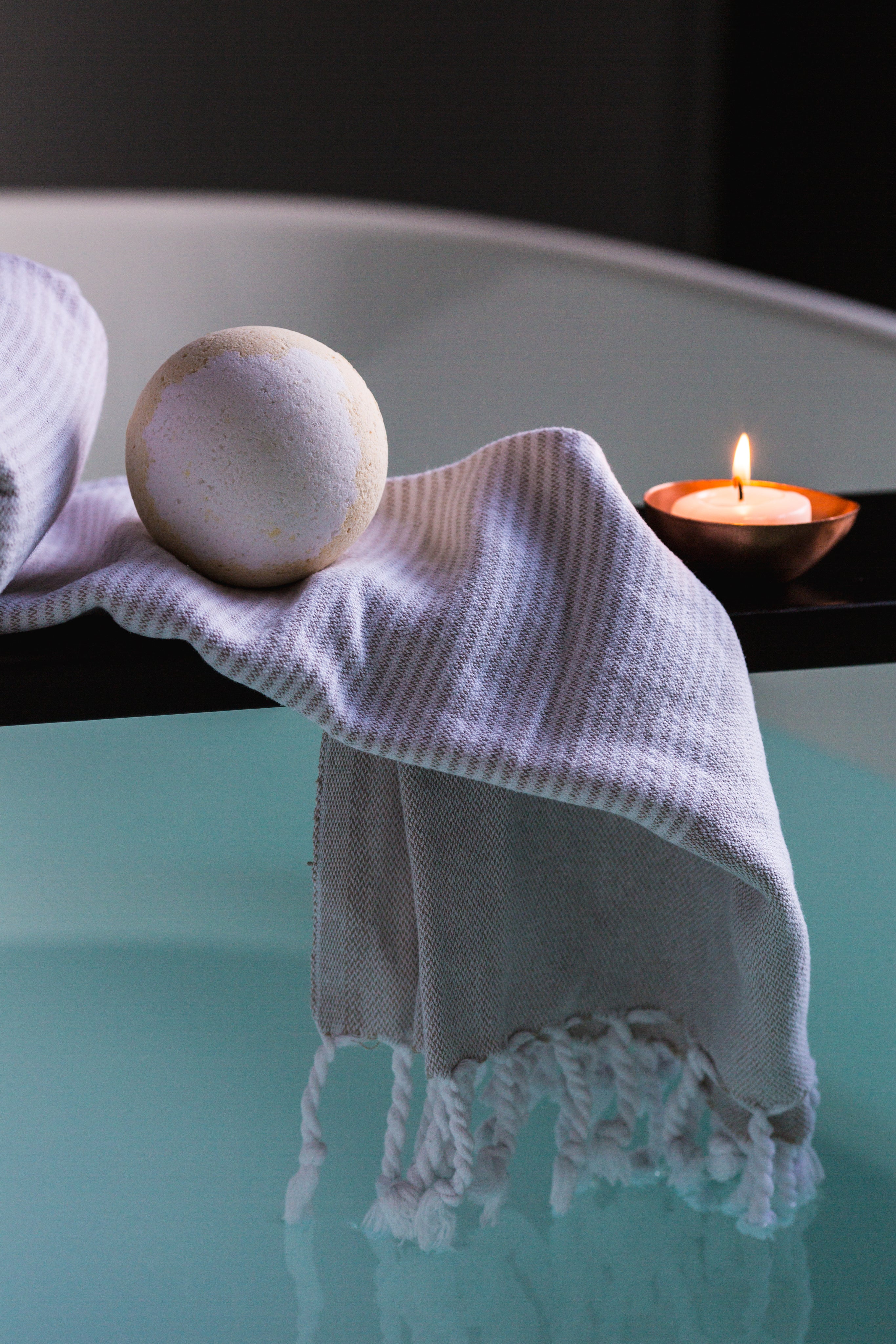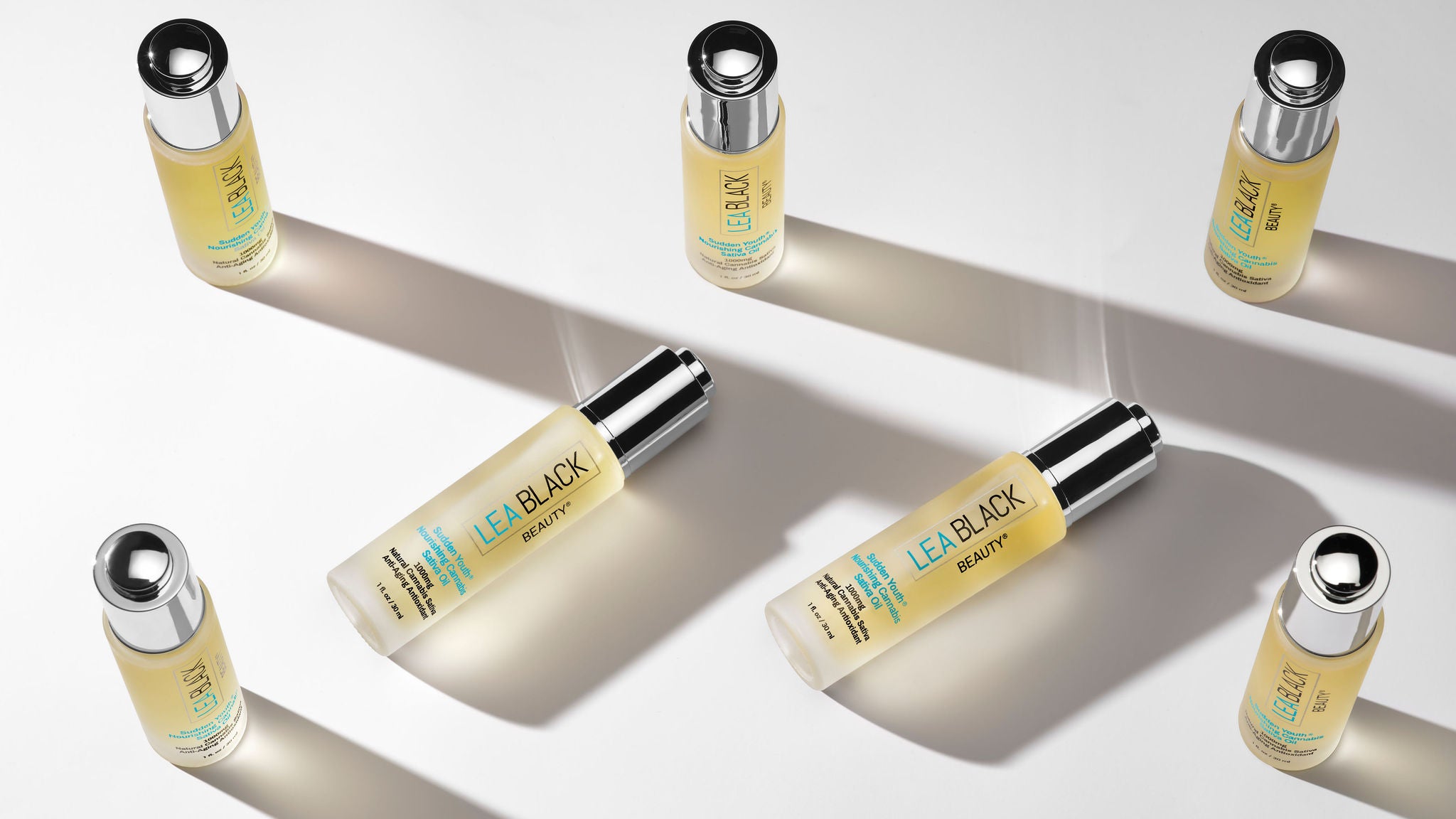Is vitamin C or E better for skin health? Both powerhouse ingredients have their own unique benefits, and when combined, they offer powerful synergy. Although they can work together in beautiful harmony, it’s important that you understand what sets them apart. That way, you can tailor your daily skincare routine to your skin type and your personal needs and preferences.
Let’s take an in-depth look at two of the most highly recommended skincare antioxidants.
A Quick Overview of Unique Benefits
Vitamins C and E do share some benefits in common—both are antioxidants that can help to neutralize free radicals and prevent oxidative stress, for example.
The following unique benefits are the main differentiating factors to keep in mind when comparing vitamin E vs vitamin C for skin:
- Vitamin C: A water-soluble antioxidant that’s commonly used for brightening dull skin, evening skin tone, synthesizing collagen, combating redness and inflammation, and reducing fine lines and wrinkles.
- Vitamin E: A fat-soluble antioxidant that’s commonly used for moisturizing dry skin, reducing the appearance of scarring and UV damage, protecting existing collagen, healing damaged skin, and soothing psoriasis, eczema, and other skin conditions.
Now that you have a fundamental understanding of how both vitamins are typically used let’s explore each one individually.
Vitamin C: The Glow-Getter

Vitamin C is often found in toners, such as Lea Black Beauty® Brighten & Balance 200mg CBD Skin Toner, as well as oils and serums.
When analyzing the typical utilization of vitamin E vs vitamin C for skin, vitamin C tends to be more popular as a brightening agent and anti-aging ingredient. It’s frequently recommended to people trying to achieve glowing skin. Is vitamin C or E better for the skin? Well, that depends on your goals! Let’s examine what vitamin C can do, and then we’ll move on to vitamin E.
Brightens and Evens Skin Tone
Vitamin C has been shown to block an enzyme called tyrosinase that produces melanin, which is the pigment that gives skin its color. By inhibiting and regulating the amount of melanin in the skin, vitamin C can fade dark spots and promote a more even, consistent, and radiant skin tone.
Combats Oxidative Stress
When comparing vitamin E vs vitamin C for skin, there will be some similar benefits, such as this one. Vitamin C and E are both antioxidants that neutralize and protect the skin from free radicals, pollution, UV damage, and other external stressors that cause oxidative stress and damage skin cells.
Synthesizing Collagen
Vitamin C is essential for the synthesis of collagen, which is a protein that gives skin its structure, firmness, and elasticity. As we age, our bodies produce less collagen, which is a major cause of visible signs of aging. More collagen means a more youthful-looking complexion.
Soothes Inflammation
Vitamin C has powerful anti-inflammatory properties that can calm itching, swelling, redness, and other symptoms of inflamed skin.
Vitamin E: The Hydrator

When analyzing vitamin E vs vitamin C for skin, you’ll find that vitamin E is famous for its deep moisturization and hydration. That’s why it’s frequently used in moisturizers and body lotions, such as Lea Black Beauty® CBD Daily Face Moisturizer and Lea Black Beauty® Natural Youth® 200mg CBD Hand & Body Lotion.
Absorbs and Traps Water in the Skin
Is vitamin C or E better for dry and brittle skin? Vitamin E is the clear winner for this particular use case. It’s a humectant (absorbs water into the skin) and an emollient (traps water in the skin). Additionally, Vitamin E can help your skin absorb and retain other beneficial ingredients besides water, including vitamin C—see the synergy?
Protects From Free Radicals
Remember, when it comes to vitamin E vs vitamin C for skin, both are antioxidants that combat free radicals and other external stressors. However, although they both fight oxidative stress, their functions aren’t identical. Vitamin C neutralizes free radicals in the aqueous phase of skin cells; vitamin E neutralizes free radicals in the membranes of cells. More synergy!
Supports Collagen Longevity
While vitamin C is vital to the production of collagen, vitamin E protects existing collagen fibers. This is yet another example of how both vitamins synergize—vitamin C makes the collagen, and vitamin E protects it! Research suggests that vitamin E may also influence cells to produce collagen.
Calms and Soothes Damaged Skin
As you learn about vitamin E vs vitamin C for skin, you’ll find that vitamin E is more commonly used for damaged skin, such as eczema, psoriasis, sunburn, and scars, just to name a few.
Studies have shown that vitamin E can boost cell turnover, helping skin to heal and rejuvenate faster. By balancing moisture levels, vitamin E can strengthen the skin barrier, making it more resistant to damage in the first place.
Vitamin E’s anti-inflammatory properties also make it an ideal choice for soothing common symptoms of inflammation, such as itching, swelling, and redness.
Experience Clinically Proven Results
Is vitamin C or E better for the skin? As you can see, neither one is better than the other—it all comes down to your beauty and skincare goals! Instead of choosing between vitamin E vs vitamin C for skin, we highly recommend using both. They work wonderfully together, and they also have enough unique benefits to serve their own purposes.
At Lea Black Beauty®, we proudly offer a wide variety of 100% natural skincare products lovingly formulated with the finest clean, raw antioxidants and other premium ingredients sourced from exotic regions worldwide. Shop now, and discover what vitamins C and E can do for you!





